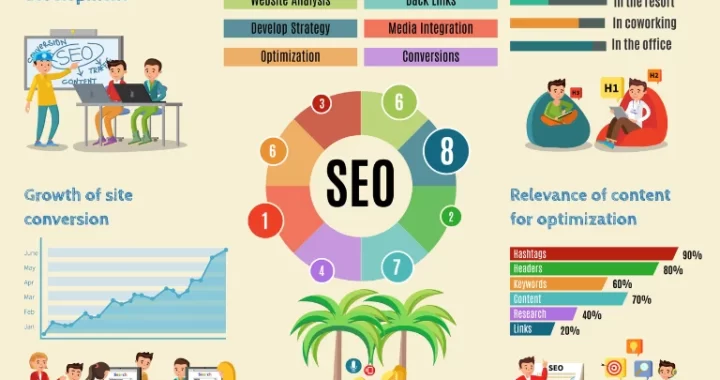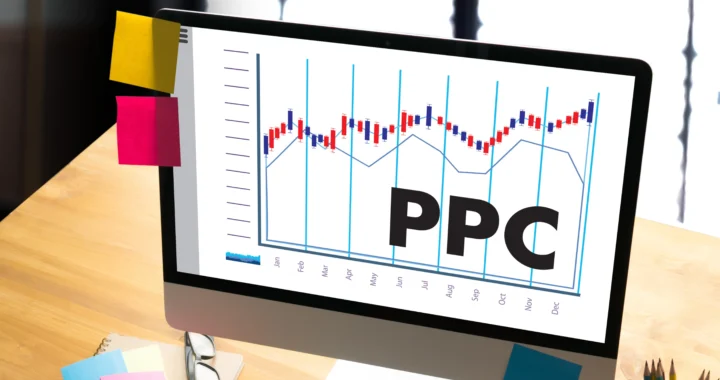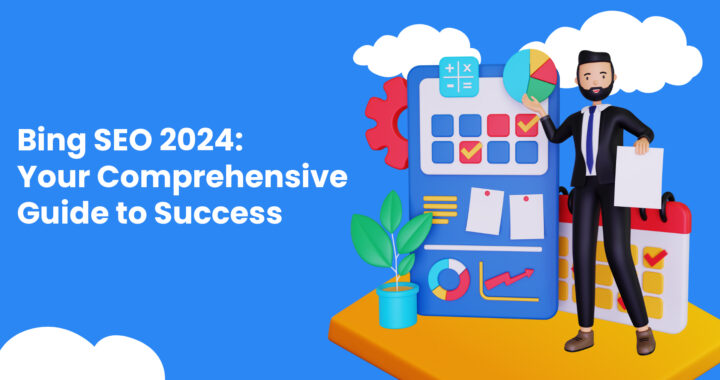Contents
Are you all set to launch your new website? If so, let us advise you on some SEO tips to make your website launch effective and successful. Launching a website is considered an ideal time to implement your SEO strategy. As the website isn’t already live on the server, you can easily make any required changes to the website and fine-tune it for desired results.
SEO is a great way to improve your website ranking on SERP and enhance your brand presence. However, many organizations do not understand how SEO works and think implementing SEO is just a one-time task. They can’t be any more wrong as SEO is a highly critical component of a website that needs consistent analysis and changes as per the reaction from audiences.
Fortunately, as we are still at the website launch level, we can adhere to some good SEO practices to ensure a successful launch for your website. Let us begin!
Start by Auditing Your Page Title Tags
After the website design you can check the fundamental step to take before your website launch is to audit the title tags and meta descriptions for your website pages. They are a critical factor in improving your website’s rankings and performance.
Also, if you are relaunching your website and have made alternations in the content, you can significantly lose your hard-earned organic search traffic from performance pages due to tag alterations.
So make sure to research and add appropriate tags at the start of your website for the best results.
Build an Effective Page Map and Site Architecture for Your New Website
Planning your site architecture with a reliable high-level hierarchy is immensely important for your website’s success. It makes your content organised and helps the users to effortlessly navigate between pages and improve their user experience.
If you have existing content present on your website, find the right way to adjust it on your new website without losing its significance. In case the pages already have a clean folder structure with descriptive URLs, there isn’t any need to change them.
Some things to keep in mind before making any changes to the content are:
1. Check the organic ratings of your pages before scrapping them.
2. Add 301 redirect to the new page URLs that ensure your old content seamlessly moves to a new location along with the old organic rankings.
3. Do not remove pages of your website in bulk as it may impact the authority of your website.
Check Out Your Competitor’s Websites
Checking out your competitors websites will surely add some valuable knowledge for you. Examine their websites and take note of their strongest and weakest backlinks
Check their most targeted niches and how they operate within the ecosystem. Going through several competitor websites, you will surely gain some knowledge to make additions to your own website.
Be Ready with Informative Content and Set a Content Calendar for Future Content
Find appropriate keywords and complete your permanent website pages such as the homepage, about us page, etc. Once done with that, shift your entire focus to building an effective content strategy for your website.
Your audience grows when you constantly provide them with new and relevant information about your industry. Hence, start creating informative content in the form of blogs, videos, etc., and regularly post it on your website and other social media channels to enhance your audience.
The best way to do so is by building a content calendar and keeping the content ready for the upcoming weeks to ensure consistency in your posts.
Review and Improve the On-Page Elements on Your Website
On-Page elements in a website can do wonders to your website ranking if implemented correctly. Hence, avail of this opportunity to analyse the elements present on your website and use them appropriately.
Here are some of the elements to check for the best results:
1. Use of headers <h1> to <h5>
2. Copy Placement
3. HTML titles
4. Internal Links
5. Canonical tags
6. Meta descriptions
7. Image ALT tags
Make Off-Site SEO Your Website a Priority
On-site and off-site SEO both are tremendously important for your website’s success. Where On-site SEO is responsible for optimising keywords, title tags, meta descriptions, and images, off-site SEO helps build strong backlinks.
Backlinks are basically the links from one page of the website to another website. Renowned websites may link to your page if something useful and informative is present there. It builds credibility for your website, both for Google and your audience.
Though acquiring good backlinks might be harder at first, they should never be ignored. Therefore, start by building a strong on-site SEO strategy and, after a short period, shift your focus to off-site SEO and acquire good backlinks for your website.
Learn to Use Analytical Tools Before the Site Launch
There are several analytical tools available online that help assess your website’s SEO success. They help in providing valuable insights such as customer acquisition, behaviour, and sales conversions.
Google Analytical tool is fundamental to all, and you should learn to use it before your website launch. It will help you keep updated about your website and help optimise things that can add value to your website.
Inform Google About Your Website
There are a few elements that you can use to inform Google about your business. By leveraging those features, you can index pages and tell Google about the things you want it to see. Following are the things that you must pay close attention to:
1. txt File
It is a really important file structure that informs search engine crawlers about which URL’s are open to access on your website. It is generally leveraged to avoid overloading your website with requests. Hence, you provide a way to the search engine for crawling the website and keeping a few unnecessary files hidden.
2. XML Sitemap
Now the pages that you don’t want Google to crawl are hidden. You can leverage XML sitemap to tell Google about the pages you want your audience to see. By providing a legitimate XML sitemap, you can enhance the efficiency of the Google crawling process and achieve the results you are looking for.
Conduct a Final Pre-Launch Review
A final prelaunch review is a must for your website as it can indicate the things you might have missed out on. Make sure to conduct this review a few days before the launch to have sufficient time to implement changes if any.
Some of the questions that should be encountered in your pre-launch review are:
1. Does every landing page have its unique title and meta description?
2. Is the <H1> tag present on each website page?
3. Is the sitemap updated with new page URLs?
4. Are all the 301 redirects in place and accurate?
5. Is your new website mobile-friendly?
Do Not Miss on Post-Launch Review
The task of SEO optimization does not stop with the website launch but actually starts. Regularly collect the data from your website every 2-4 weeks and analyze the customer trends, user behavior, etc., to find how well your website performs.
You can also use analytical tools to do this research. Once you have numbers in hand, accordingly check each parameter to find where you are lacking. Conversely, if the results are good, make sure to keep a note of things you did to make that happen.
Sounds too Complicated? Do Not Worry, Let Us Help You!
Search engine optimization is not a choice but a necessity for a website to succeed in today’s digital world. So if you are close to your website launch and have not optimized your website yet, it’s time to consider it for the best results.
Reach out to your SEO experts to get a complete SEO audit for your website.



